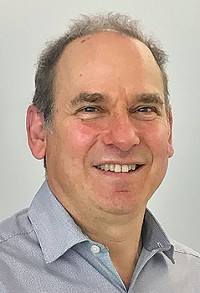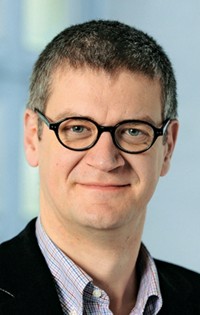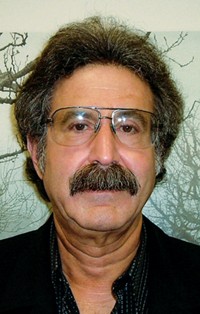Advertisement
Grab your lab coat. Let's get started
Welcome!
Welcome!
Create an account below to get 6 C&EN articles per month, receive newsletters and more - all free.
It seems this is your first time logging in online. Please enter the following information to continue.
As an ACS member you automatically get access to this site. All we need is few more details to create your reading experience.
Not you? Sign in with a different account.
Not you? Sign in with a different account.
ERROR 1
ERROR 1
ERROR 2
ERROR 2
ERROR 2
ERROR 2
ERROR 2
Password and Confirm password must match.
If you have an ACS member number, please enter it here so we can link this account to your membership. (optional)
ERROR 2
ACS values your privacy. By submitting your information, you are gaining access to C&EN and subscribing to our weekly newsletter. We use the information you provide to make your reading experience better, and we will never sell your data to third party members.
People
Theoretical Chemists Win Welch Award
Foundation honors pair for their achievements in basic chemical research
by Jyllian Kemsley
May 22, 2007

In recognition of their work in theoretical chemistry, Noel S. Hush, a chemistry professor at the University of Sydney, in Australia, and William H. Miller, a chemistry professor at the University of California, Berkeley, have won the 2007 Welch Award in Chemistry. The Welch Foundation, based in Houston, grants the $300,000 award to honor achievements in basic chemical research.
"The fundamental theoretical work by Hush and Miller in chemical dynamics gives the scientific community powerful, basic research tools," says J. Evans Attwell, chairman of the Welch Foundation.
Hush is known foremost for his work on electron transfer, in particular a description of the activation process involving not only solvent reorganization but also the inner structure of the ion complex. Hush also investigated electron transfer between species covalently linked by a bridging molecule. He now collaborates on a research effort focusing on the theoretical foundation of electrode-molecule-electrode conduction in nanoscale electronics.
Miller???s research focuses on chemical reaction dynamics. His past achievements include developing a semiclassical scattering theory (the classical S-matrix theory) for chemical reactions, as well as a rigorous quantum theory of reaction rates. He is currently investigating a method for adding quantum effects to classical molecular dynamics simulations of complex chemical processes such as combustion.





Join the conversation
Contact the reporter
Submit a Letter to the Editor for publication
Engage with us on Twitter